Blockchain technology is many times hailed as a massively disruptive innovation across industries. As such, blockchain is often linked to the advent of the ”fourth industrial revolution”, or Industry 4.0. Nevertheless, the notion of blockchain technology being a cutting-edge technology means that some people assume it is a novel technology only being explored by blockchain startups.
In reality, however, nothing could be further from the truth. Despite what some mainstream news outlets would lead one to believe, well-known billion-dollar companies are already seriously exploring blockchain. How companies use blockchain technology differs depending on their respective industries, but one thing is clear – blockchain isn’t a gimmick.
As such, this article looks at how some companies use blockchain and how they differ in their implementations. Understanding what companies invest in blockchain technology and showing that large corporations are actively pursuing the technology constitutes an important step in bringing about greater adoption of the technology.
Moreover, it shouldn’t come as a surprise that well-known billion-dollar companies are investing in blockchain technology. Although revolutionary, blockchain technology could very well constitute the next internet-like breakthrough. Many companies that initially missed out on the transition to digital are now eager to avoid the next shift to blockchain-driven operations.
With blockchain being able to improve everything from traceability to reliability, exploring the technology can seem like a no-brainer. However, multi-billion dollar companies are often slow in adopting innovative new technologies.
Consequently, the fact that many well-known giants of industry are already actively exploring blockchain technology is promising. Naturally, companies aren’t doing this out of altruistic intentions. Instead, they believe that successful blockchain implementations can allow them to beat their competition, lower their costs, and make their operations more efficient.
Which Companies Use Blockchain Technology?
Someone unfamiliar with blockchain technology could easily be lead to believe that the blockchain field exists purely of startup firms. However, it is more accurate to compare blockchain technology with artificial intelligence, big data, or system integration. As such, all big companies are currently looking at using these technologies to stay competitive.
As a result, blockchain technology is not a fringe field only being explored by startups. Instead, various large companies are spearheading their own efforts to benefit from the technology and associated innovations. Therefore, the question ”which companies use blockchain technology” is most accurately answered with ”companies that want to remain competitive”.

So, you must wonder, exactly what companies invest in blockchain? Some of these billion-dollar companies are Amazon, Citigroup, Google, Microsoft, Comcast, HTC, Samsung, JPMorgan Chase, IBM, Maersk, Nestle, and Walmart. That is quite a list, which should demonstrate that blockchain technology is far from some niche innovation.
Instead, blockchain technology is rapidly emerging as one of the cornerstones of ”Industry 4.0”. Moreover, that is without even mentioning the field of decentralized finance, which on its own could bring about massive change.
Just like it would seem unthinkable that a multi-billion dollar company would not be thinking about the internet technology (IT) roughly 25 years ago, so is it looking increasingly odd when companies do not explore blockchain technology today.
Consequently, this article sets out to disprove the far too common conception that blockchain technology is some corner use-case. Furthermore, it looks to highlight the fact that well-known, multi-billion dollar companies are already diving head-first into blockchain technology.
Therefore, let us look at which companies use blockchain technology or are actively exploring the technologies. Moreover, let’s ignore pure blockchain and crypto startups and focus on traditional companies.
Blockchain in Billion Dollar Supply Chain and Retail Companies
Anheuser-Busch InBev
This Belgian-Brazilian brewing behemoth is the largest beer producer in the world. Moreover, it is actively pursuing blockchain technology in several projects. One pilot project in the Bay Area let consumers upload their drivers’ licenses to a blockchain.
After doing this, the consumers were able to purchase beer at designated vending machines merely by scanning their phones. In doing so, the information uploaded to the blockchain – i.e., the person’s driving license – worked to verify the consumers’ age and let them purchase beer.
However, perhaps most notably, Anheuser-Busch Inbev is also involved in an ambitious supply-chain project together with the blockchain company BanQu. This blockchain-driven supply chain experiment takes place in Africa and helps track cassava grown by Zambian farmers.
Cassava is sometimes used as an ingredient in making beer. However, the supply chain and conditions can be notoriously opaque. Consequently, this blockchain-driven project intends to lend greater visibility to the sometimes murky conditions in the cassava plants’ supply chain.
According to the joint press release by Anheuser-Busch Inbev and BanQu, the project allows interested parties to track the cassava plant every step through the supply chain, from plant to product.
Moreover, farmers are said to be able to access the blockchain to register various supply chain checkpoints easily. As such, any transaction can be traced through built-in geo-tracking tags that upload relevant data for each shipment of cassava plants.
Especially the ease-of-use is one important aspect to note. To truly have an impact, blockchain technology must be easy to use and accessible. Seeing as any farmer can access the tracking program with merely a smartphone makes it considerably easier to boost visibility in the cassava supply chain’s bottom tiers.
Mastercard
It might seem surprising to see Mastercard included on this type of list, but Mastercard is actively exploring blockchain technology promises. In fact, Mastercard has already applied for a whopping 80 different blockchain-related patents.
Out of these 80, at least 16 patents have already been granted, and one is of particular interest. This describes a system for linking traditional bank accounts to cryptocurrency accounts. Naturally, this could substantially boost the accessibility of crypto payments.
In addition to the obvious financial applications of blockchain technology, however, Mastercard is also looking at retail and supply chain implementations. In fact, Mastercard is teaming up with Amazon and Accenture to build more transparent supply chains.

Although talk about ”transparent supply chains” can sound like empty promises, it seems Mastercard, Amazon, and Accenture are sincere in their ambition. Specifically, they are looking to build a holistic, blockchain-driven system stretching from point-of-sale all the way back through a product’s supply chain.
As such, anyone buying, say, a bag of coffee would potentially be able to see where the coffee was harvested and by whom. What’s more, the idea is that the customer would be able to tip the coffee farmer or other actors in the supply chain through Mastercard’s payment network.
If realized properly, this initiative could bring unprecedented transparency to supply chains around the world. Of course, it is unclear whether Mastercard, Amazon, and Accenture will genuinely be able to realize this vision of seamless insight into lower-tier supply chains.
However, it is clear that the only technology that could easily support such a system is blockchain technology. Moreover, how companies use blockchain depends on what they have to gain from it. Mastercard’s vision of integrating blockchain with its payments could, therefore, incentivize adoption.
Blockchain in Billion Dollar Consumer Electronics Companies

HTC and Samsung
Those keeping an eye on the smartphone business will likely be intrinsically familiar with both HTC and Samsung. HTC was the early king of Android smartphones, and Samsung is currently widely seen as the top Android contender, facing off against Apple’s line of iPhones. However, what some may not know is that both companies are actively exploring blockchain technology.
This is just further proof that it can be hard to know what companies invest in blockchain if one does not take a closer look at the field. HTC was arguably the first major smartphone manufacturer to make a move into the blockchain field. This came with the launch of the HTC Exodus 1, back in early 2019.
The Exodus 1 was a blockchain-centric smartphone, which promised to let users store cryptocurrencies on-device. Besides acting as a makeshift crypto wallet and allowing users to trade cryptocurrencies, the Exodus 1 also had a web browser designed for blockchain-based sites.
Nevertheless, the Exodus 1 ended up having a relatively limited reach. This was in part due to the device’s niched nature and the manufacturer’s low market share. However, this is where Samsung comes into the picture.
In learning what companies are currently using blockchain, one should know Samsung originally launched its Samsung Galaxy S10 back in 2019 with rudimentary blockchain and cryptocurrency capability.

Specifically, the Galaxy S10 line of devices came with a built-in cryptocurrency wallet, much like HTC’s Exodus 1. Unlike the Exodus 1, however, the Samsung flagships have a much greater reach due to their popularity.
Moreover, the South Korean manufacturer then built on this experience in 2020. Samsung’s 2020 flagships, the Samsung Galaxy S20 lineup, came with improvements to Samsung’s ”Blockchain Keystore”. The company is also working to integrate blockchain functionality with its Knox security software.
Blockchain in Billion Dollar Grocery and Retail Companies

Walmart
As any American readers will know, Walmart is an absolute giant in the retail space. The company is also betting on blockchain technology to provide its logistics, tracking, and verification system of the future.
First and foremost, Walmart intends to use blockchain technology in order to track shipments to and from its warehouses. As such, Walmart hopes to quickly and efficiently be able to pinpoint certain inferior products and can, therefore, e.g., prevent food scares.

Back in 2016, Walmart became an early partner in the IBM Food Trust, which is currently in use by more than 120 companies. The IBM Food Trust is a blockchain-driven system for tracking various groceries and products.
Using the IBM Food Trust, Walmart has already tried tracking hundreds of different SKUs. Last year, the company also said that it would implement blockchain tracking for all of its lettuce and spinach by its various suppliers.
Nestle
Nestle is an international food and drinks processing conglomerate. However, it is also becoming an avid adopter of blockchain technology. Specifically, Nestle is behind a plethora of various blockchain-driven projects.
In just the past two years, the Swiss company has begun a whopping ten different projects utilizing blockchain technology. The sheer number of blockchain projects is a testament to how useful the food giant believes blockchain to be.
One of the most exciting initiatives is done in cooperation with IBM and Walmart’s Food Trust. This project sees IBM and Nestle attempt to track the place of origin of food ingredients in various products. These products include baby food, for example.
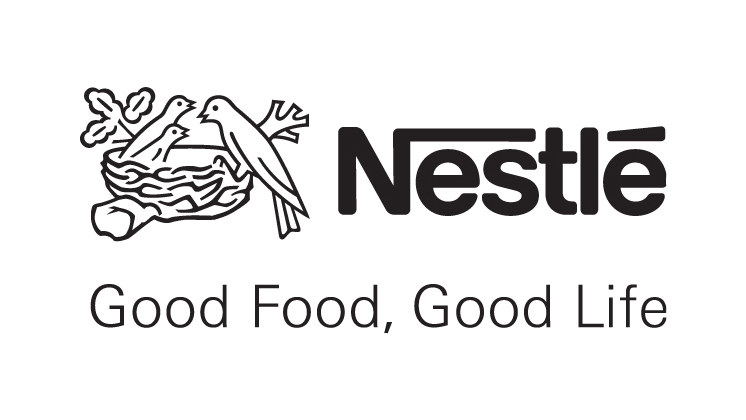
Moreover, being able to track the source of origin of ingredients accurately means that detecting anomalies and recalling certain products becomes easier. In the US alone, food-borne illnesses cost roughly $55 billion every year and recalls often result in wasteful practices.
Blockchain-driven tracking can dramatically reduce the complexities of such recalls and allow for more accurate recalls. As such, a blockchain-based system could be central to reducing the cost of food-borne disease all over the world, and is an excellent example of how companies use blockchain to solve old problems.
Furthermore, such an initiative – if it manages to reach a high level of adoption – could generate positive spillover effects, and act as an example to other industries.
Blockchain in Billion Dollar Companies – Summary
It is clear to see that blockchain is here to stay – at least among the giants of industry. Hopefully, this article sheds some more light on answering the question ”which companies use blockchain technology”.
In fact, it is quite easy to determine what companies invest in blockchain – namely, the companies looking to remain competitive. The ways how companies use blockchain will only keep increasing. As such, there has never been a better time to learn blockchain.
Ivan on Tech Academy offers one of the most comprehensive online blockchain course platforms in the world. What’s more, there are various courses suitable for beginners and experts alike. Join over 20,000 existing Ivan on Tech Academy alumni and become a blockchain expert, and help build the future!





